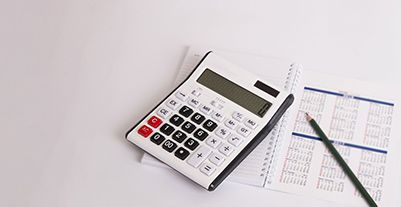What is a bank statement?
A bank statement is a report provided by a financial institution to an account holder, detailing transactions, balances, and other financial activity within an account.
Why is a bank statement required?
A bank statement is required for financial transparency and record-keeping. It helps account holders monitor transactions, track balances, reconcile accounts, and provide proof of financial activity when needed.
Here’s how you can prove your creditworthiness without bank account statements
Personal loans are short-term unsecured loans. Financial institutions offer them to you after assessing your creditworthiness. As bank statements paint an accurate picture of your financial capabilities, lenders rely on them to judge whether or not you have adequate funds for personal loan repayment. Accordingly, they either approve or reject your application.
5 ways to get a personal loan without a bank statement
- Have a low FOIR (fixed-income-to-obligations ratio), no more than 50%. This indicates that you have sufficient disposable income for timely repayment.
- Ensure a high credit score of 650 or higher for approval. Remember that your credit score shows your creditworthiness and puts lenders at ease.
- Build a substantial repayment history comprising regular credit card and EMI payments. This proves that you are a reliable and responsible borrower. Use our personal loan EMI calculator to plan your repayments in advance.
- Submit salary slips. They are proof that you receive an income regularly, and hence will be able to repay the personal loan on time and in full.
- Approach a lender with whom you have a long-standing relationship. This way, you can better your chances of getting a personal loan without bank statements. In fact, by being on good terms with a lender, you can also negotiate lower personal loan interest rates.
Additionally, make up for the lack of bank statements by ensuring that you meet all other eligibility criteria. Also, submit all the documents required to process your application through the personal loan app.
Eligibility criteria for personal loans without bank statements
You do not need to check eligibility criteria for Insta Personal Loan since it is pre-approved, which means we have already assessed your creditworthiness. To apply for our regular personal loan, the eligibility criteria are:
- Nationality: Indian
- Age: 21 years to 80 years.
- Employed with: Public, private, or MNC.
- CIBIL score: 650 or higher.
- Monthly salary: Starting Rs. 25,001, based on the city you live in.
How to apply for an instant personal loan without bank statement
Getting an Insta Personal Loan from Bajaj Finance is simple. You only need to follow the steps below.
- Click on ‘CHECK OFFER’.
- Enter your 10-digit mobile number and OTP.
- Go with the pre-assigned limit or choose a different loan amount.
- Choose a repayment tenure that suits you best.
- Click on ‘PROCEED’ to complete the online process.
The online process may differ depending on whether you are a new customer or have an existing relationship with us.
Frequently asked questions
Here is how you can apply for a personal loan without bank statements:
- Approach a familiar lender for better chances and possible negotiation on interest rates
- Maintain FOIR below 50%
- Aim for a credit score of 650 or higher
- Build a positive repayment history
Yes, a bank statement is required for getting a personal loan. Before approving the loan, lenders typically ask for bank statements to assess the applicant's financial health, income, expenses, and repayment capacity.
For a Bajaj Finance Personal Loan, minimum monthly income requirement is Rs. 25,001, based on the city you live in.
You need a CIBIL Score of 650 or higher to get our personal loan.
Yes, bank statements are crucial for a personal loan as they provide a detailed financial history. Lenders use them to assess an applicant's creditworthiness, income stability, and repayment capacity.
You need to check with the lender if they are willing to accept other documents as income proof, such as salary slips.
You have to submit PAN card to get our personal loan.





